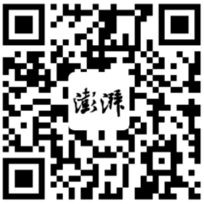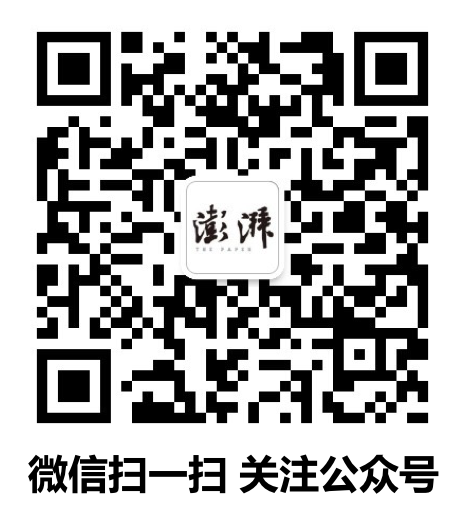- +1
贝淡宁,汪沛:艰难抗疫带给中国新的可能

Editor's Note:
在此全民抗疫的特殊时期,我们特别开设了一档全新栏目——PUP Advisor 话新冠,为书友们分享来自普林斯顿大学出版社“中国学术顾问理事会”成员针对此次新冠肺炎疫情的观点。
本次第三期分享将带来的是国际知名哲学家、社会学家贝淡宁(Daniel A. Bell)教授最新发表于《环球时报》的言论文章《贝淡宁、汪沛:疫情之下中国社会涌现新生机》(中文版),以及同步发表于《南华早报》South China Morning Post 的英文版 Coronavirus holds up a mirror to China’s problems, and the nation will be the better for it。
伴随中国在世界学术与思想领域持续崛起的影响力,自2015年起,普林斯顿大学出版社开始筹备并组建了由林毅夫、施一公、阎学通、姚期智、薛澜、汪晖、贝淡宁、刘禾、郑永年、谢宇、朱强、颜海平、Martin Kern 这十三位领军学者思想家组成的“中国学术顾问理事会”。该理事会为PUP在中国的发展提出战略性建议,并协助PUP把中国顶级学术成果推向世界。
本文作者为山东大学政治学与公共管理学院和复旦大学中国研究院助理研究员汪沛,经作者授权发布。
中文原文2月19日刊发于《环球时报》,英文原文2月21日刊发于 South China Morning Post
两位作者合著的新作 Just Hierarchy: Why Social Hierarchies Matter in China and the Rest of the World 已于近期由普林斯顿大学出版社出版。

中文版全文
最近,中国社会深受新冠肺炎疫情侵扰。确诊病例与死亡病例已经大大超过17年前的SARS,学校推迟开学,一些单位、企业推迟上班、开工,城市难以看到之前车水马龙的正常生活。但是中国人自古以来相信否极泰来,再艰难的状况中都孕育着新的可能。

首先,对于信息的审核和审查有可能将更加科学。这次疫情中,李文亮医生不幸去世引发舆论关注。如果业内人士和专家有在专业范围内自由讨论的权利,那么更多的专家可以在第一时间了解并且参与研究,或许疫情所造成的损失会远小于现在。政府本身也可以从中受益。就目前而言,专业部门如果能够即时地对相关地区发布预警信号,那么无论地方政府还是民众,对于即将到来的风险会有更好的准备。一旦有这种机制,即便出现问题,责任也会更加分散。另一方面,政府也可以听取专家意见着手解决问题,使得决策机制更加迅速、扁平化。对于专业而有效的信息,我们需要更为高效和科学的处理模式,应更多鼓励行业内专家之间的讨论和交流,更多地支持我们的专业人士和专业部门,尊重事实、实事求是,在可预见的灾害到来之前尽力做好最困难的准备。
其次,在这次疫情中人们的工作方式也有所改变。上海医疗救治组专家张文宏呼吁:“现在每个人都是‘战士’,你在家里不是隔离,是在战斗!你觉得很闷吗?病毒也要被你‘闷死’了,‘闷’两个礼拜。”很多人已经自觉响应这一呼吁,在家中开始了工作。在北上广这种超大规模城市,平均每次往返通勤时间大约两个小时左右。对很多经常堵车和挤地铁的上班族来说,在家办公可以免于这种折磨。政府一直呼吁减少官僚主义和形式主义,所以一些东西确实该变变了。眼下,绝大多数会议都在网上进行,时间大为缩短,文书工作减少,需要填的表格也更少。一旦疫情结束,一切归于正常,具有效率的新习惯应继续保持下去。

第三,商界对高科技的需求将越来越大。最近和无人机有关的各种视频都成了网红爆款。许多城市和农村的上空有挂着喇叭的无人机飞旋,用各种地方方言花式劝告。在重庆巴南,配备消毒药剂的工业级无人机,在人员操作下对重点防疫区域展开空中喷洒消毒作业。除此之外,还有更多对于智能机器的需求。在这次抗击疫情的战斗之中,许多医生、护士和家庭成员因为照顾病人而受到感染,还有司机、外卖员和快递员也都曝露在高风险的工作环境里。将来,智能护理机器人可以帮助照顾病人和年迈的老人;能够自动消毒的无人驾驶汽车可以将患者送往医院;机器人可以将食品外卖和快递运送给人们。可以想见,无论是政府还是私人企业都会致力于这场智能革新,未来也将有大量相应的新工作出现。
第四,疫情也推动了线上教学的普及。在山东大学和复旦大学,老师即将在春季学期通过直播和录制的视频在线授课。对于老师们,尤其是并不特别擅长视频操作的老师来说,这样的调整非常痛苦,因为他们在一开始需要做更多的准备工作,但大家知道这些变化是必要的。一旦教师适应了这些变化,在线教学的实践将变得更加普遍。好处显而易见,疾病传播的风险将大幅度降低。学生和老师也不用花费时间往返于家校,而有更多学习和阅读的时间。并不是说在线教育将取代实时教学,但我们可以大致预测,更具创新性的教学方法将得到更广泛的普及。

这还有其他益处。当今中国面临的最大挑战之一是减少中国贫富地区之间的教育不平等,来自偏远地区的学生常常缺乏良好的教育资源和教学设施。随着网络在城市和农村的普及,在线教学成为可能。绝大多数学生,无论班级背景如何,都可从优秀教师授课中受益。眼下老师的负担或许是最重的,将来我们希望人工智能可以帮助回答学生的疑问,从而减轻老师的负担。
同时,对于宅在家里的人来说,也可以成为一次学习的好机会。国内视频弹幕网站Bilibili汇总了北大、清华、复旦等多个大学人文社科公开课,其中也包括一些非常专精的课程,还有一些和大众文化紧密相关的课程。网友们在课程中的大量弹幕里相互交流,形成了临时的学习共同体。在这不得不宅在家中“战斗”的日子里,看公开课、发弹幕成为了很多人积极面对生活的一种方式。

第五,今年春节假期里,人们不得不和家里人从早到晚面对面共同生活,这也改变了很多人的人生。有些愤世嫉俗的人预测,疫情过后离婚率将大大提高;有些乐观的人预测,疫情过后的九个月出生率将大幅上扬。无论如何,在疾病面前,对死亡的恐惧使人们更多地思考生活中真正重要的事情。我们对琐碎的事情不那么在意了,因为更清楚什么是重要的,例如好好活着并与亲人一起度过这段时光。
疫情之下还有助于培养社区精神。过去,中国大城市的居民哪怕门对门也基本是陌生人。但是,情况正在悄悄发生转变。在遭受重创的武汉,志愿者为独居的老人带来食物和必需品,还有热心的朋友帮助喂养主人不在家中的宠物。同在一个社区,邻里之间的关系本来就应该充满了真实的互动和情感的共鸣,互帮互助、相互鼓励使得人们之间的距离更近。在疫情过去之后,良性互动的社区精神也将是宝贵的社区财富。

第六,国际社会对中国的支持,将有助于巩固中国与其他国家的关系。春节期间,那些成行的中国游客会感谢泰国和柬埔寨等尚未对中国游客关闭边境的国家。日本援助中国的物资上写着“山川异域、风月同天”,一时之间引起网络热议。很多西方国家政府和民众都向中国和其他受新冠病毒感染的国家伸出了援手,这些努力克服了过度自私的民族主义,并为今后开展更多的国际合作奠定了基础。
疫情肆虐造成了悲剧,成千上万的家庭深受其扰,尤其那些因此失去亲人的家庭。但是灾难也使我们团结了起来,相信在民众、政府和世界友人们的共同努力下,我们最终会战胜疫情。在灾难结束之后,我们在与病毒斗争的过程中积累的有益经验也将保留下来。

英文版全文
Here in China, it is hard to be optimistic. Hundreds of people are dying from a new and scary virus, schools are closed and workplaces are largely deserted. It is China’s worst crisis in decades. We pray for the resumption of “normal” life as soon as possible.
But the Book of Changes – China’s foundational text for both Confucianism and Taoism – reminds us that the most difficult circumstances also give rise to positive changes.
Positive trends are already under way. We must resist wishful thinking, but there are good reasons to think that long-wished-for changes can be consolidated after the crisis blows over. The most obvious trend is the demand for more freedom of speech.
The case of Dr Li Wenliang has generated widespread outrage on social media. In late December, Li alerted colleagues to the new virus, mainly doctors at high risk of infection, only to be warned by local authorities not to spread rumours. Later, he succumbed to the same virus and died.
Chinese dissidents have long called for more freedom of speech.
Journalists and artists have felt frustrated by increasing constraints on their work. In academic disciplines such as political science, the space to publish academic works in Chinese has been shrinking. But the rest of society did not seem to notice increased censorship.

However, Li’s fate has galvanised public opinion in a new and forceful way. There will be strong and almost overwhelming social pressure for more freedom of speech in the future. The government needs to adapt: at the very least, it will think twice before censoring experts who disseminate their research and express worries to their colleagues.
Why should the government respond to such calls? The government itself can benefit from more freedom of speech. As it stands, political leaders are blamed for everything that goes wrong in China because only “officially” approved views are expressed. With more openness, the responsibility will be more diffuse and the government can help to fix things and deal with them efficiently before they explode.
The second positive trend is forceful recognition of the need for less bureaucracy and formalism. In recent years, China’s public officials have become ultracautious, largely due to the anti-corruption campaign. The campaign has reduced corruption in government. But the means employed – harsh punishment for hundreds of thousands of officials – created an environment where public officials are afraid to act. It is safer to keep one’s head down than to risk getting it chopped off.
At the start of the outbreak, local authorities in Wuhan failed to disclose information in a timely manner, delaying measures that could have contained the epidemic. Wuhan mayor Zhou Xianwang blamed legal restrictions imposed by central authorities: “As a local government, we may disclose that information only after we are given permission to do so.”
The delay is likely to have cost hundreds of people their lives. If the corrupt official was the bane of the Chinese public before the anti-corruption campaign, today – as a direct response of the Wuhan crisis – it is the do-nothing official who blindly sticks to the rules and cares for nothing more than pleasing the higher-ups.

Clearly, there is a need to wind down the anti-corruption campaign, and to emphasise moral self-regulation rather than fear of punishment. The anti-corruption drive had, indeed, been winding down in the past year or so. But recent events have exposed the problem for all to see, speeding up the demand for change. Talented local officials should be encouraged to innovate and experiment rather than err on the side of ultraconservatism.
In universities, there will be strong pressure to reduce bureaucracy and formalism. The obsession with lengthy meetings is a source of aggravation for many academics. There is a trade-off between meetings designed to ensure consensual decision-making and the need for efficiency, with a clear need to rebalance towards the latter.
Officially, the government calls for less bureaucracy and less formalism. But such words have had little effect till now. The joke is that documents calling for less formalism only serve to create more formalism. Things are finally changing. In universities, meetings are now online, there is less paperwork, and the meetings take less time.
We can hear calls of relief at our own universities, and we have good reason to think habits of efficiency will be maintained after the medical scare is over.
The most important positive change, perhaps, is increased recognition of the need to fix problems at home rather than scapegoat outsiders. Before the epidemic, it was easy to blame outsiders for China’s problems. The Trump administration’s hostility to China played into the hands of ultranationalists at home.

Notwithstanding the circulation of some conspiracy theories, it is obvious that the current crisis is largely home-made. Since the public health crisis, excessive nationalism has been curbed in China.
International support for China’s plight helps to cement ties with other countries. China is grateful to countries such as Thailand and Cambodia that have not closed their borders to Chinese visitors. Even less-than-friendly countries have been helping.
Japan sent deliveries of masks to China, accompanied by a moving poem that expresses the idea that China and Japan share the same “gentle breeze and bright moonlight”. Canada has won praise for sending medical equipment and not closing its doors to Chinese passport holders.
Of course, it is always possible that embattled leaders will launch a war to distract attention from problems at home. But they are no longer guaranteed the people’s support. More likely, leaders will recognise the need for more international cooperation to tackle global challenges such as climate change, the regulation of nuclear weapons, and, of course, global pandemics.
The coronavirus epidemic is a tragedy, not least for the lives lost. We – the people, the government, the whole world – should do our best to end the crisis as soon as possible. But with the bad has also come some good.

作者简介:
贝淡宁& 汪沛

贝淡宁(Daniel A. Bell),国际知名哲学家、社会学家,生于加拿大,曾任清华大学苏世民书院教授,现为山东大学政治学与公共管理学院院长。

汪沛,复旦大学中国研究院助理研究员,与贝淡宁合著的新作 Just Hierarchy: Why Social Hierarchies Matter in China and the Rest of the World 已于近日由普林斯顿大学出版社出版。
本文作者为山东大学政治学与公共管理学院和复旦大学中国研究院助理研究员汪沛,经作者授权发布。
中文原文2月19日刊发于《环球时报》,英文原文2月21日刊发于 South China Morning Post
本文为澎湃号作者或机构在澎湃新闻上传并发布,仅代表该作者或机构观点,不代表澎湃新闻的观点或立场,澎湃新闻仅提供信息发布平台。申请澎湃号请用电脑访问http://renzheng.thepaper.cn。





- 报料热线: 021-962866
- 报料邮箱: news@thepaper.cn
互联网新闻信息服务许可证:31120170006
增值电信业务经营许可证:沪B2-2017116
© 2014-2024 上海东方报业有限公司




